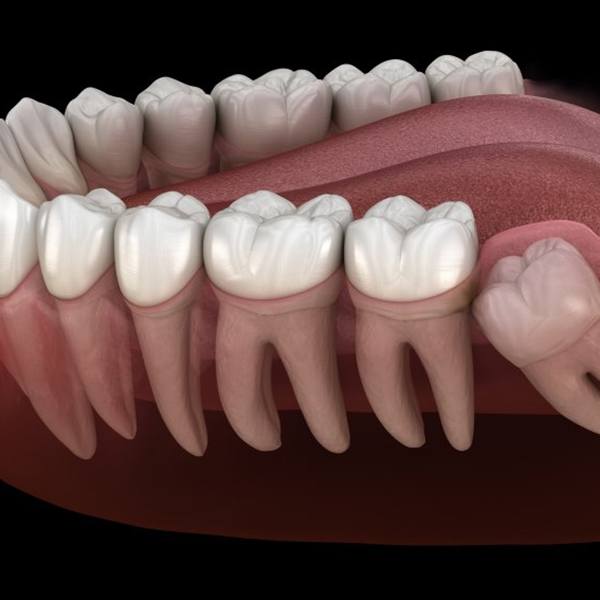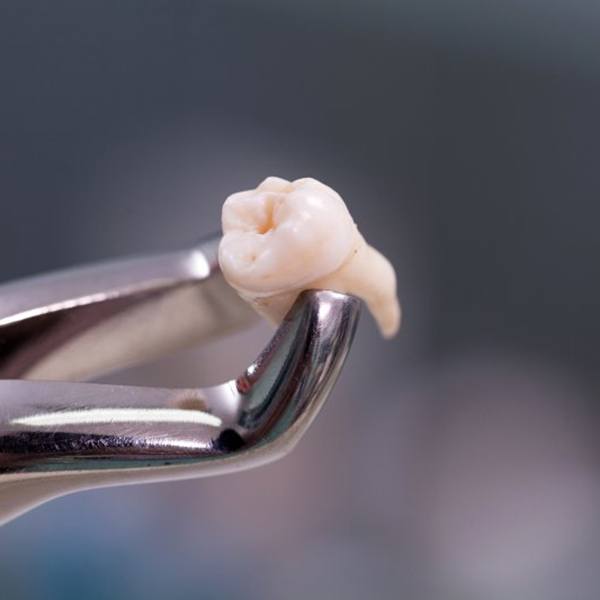
Wisdom Tooth Extraction – Hingham, MA
Safely Get Rid
of Unneeded Teeth

Despite common beliefs, wisdom teeth don’t always have to be removed. If they can erupt normally in the mouth, you can keep them as long as you’re able to take good care of them. Most of the time, though, there won’t be enough room for your wisdom teeth, and you’ll need to have them removed to stop the pain, overcrowding, and infections associated with them. Call us today to schedule a consultation with Dr. Hegazi to see if you might need wisdom tooth extractions in our Hingham, MA dental office.
Why Choose Admired Smiles Dental Center for Wisdom Tooth Extractions?
- Sedation Options for Painless Procedures
- A Trustworthy, Caring Dentist
- A Dental Office That Doesn’t Push Services
What Are Wisdom Teeth?

These are the third and final molars that a human can develop. Experts believe these flat teeth at the rear of the mouth were helpful to early humans for chewing and grinding food for smoother digestion. But with modern-day meals, which consist of processed and softer foods, people have gradually evolved so that they don’t require such a powerful jaw. For this reason, wisdom teeth have become less necessary and often don’t have enough space to erupt properly. In fact, around 35% of the population never even develop their final molars.
Why Do Wisdom Teeth Need to Be Removed?

Today, few people have wisdom teeth that don’t require extraction. Modern human jaws are much smaller compared to early humans, meaning the final molars usually don’t have sufficient room to be accommodated. In many cases, they’ll start to grow at an angle or even sideways, which can often push into nearby teeth and may lead to issues like misalignment, damage, and overcrowding. The final molars can also potentially become stuck in the jawbone, making you more vulnerable to oral infections. By visiting your dentist regularly for checkups, they can help monitor your situation and determine if your wisdom teeth can create future problems and whether you’ll need an extraction or not.
What to Expect from the Wisdom Teeth Procedure

Wisdom teeth can generally be extracted with a few methods based on how they’ve grown and if they’re impacted. Different factors that influence the treatment process include if the molars are still under the gumline if they’re completely erupted, or if they’re stuck/impacted. Our team will take X-rays of your smile to understand the ideal way to extract your wisdom teeth during your consultation. We’ll then review your preparation for the procedure before your appointment date. On the day of the extraction, we’ll likely numb your mouth and utilize special dental tools to remove your final molars (depending on their location).
Recovering from Wisdom Teeth Extraction

It usually takes several days to a week to fully recover from your extraction treatment. Immediately after your appointment, make sure to relax and get plenty of rest. This means you’ll have to avoid strenuous activity, sleep often, and keep your head elevated so that blood doesn’t rush to your mouth. We’ll prescribe pain relievers to help you stay comfortable and might provide you with a cold compress to help reduce discomfort and swelling. Make sure to stick with softer foods, such as mashed potatoes and warm/cold soup, to avoid disturbing the surgical site. If you notice any issues or unexpected changes during your recovery, notify us right away for help.